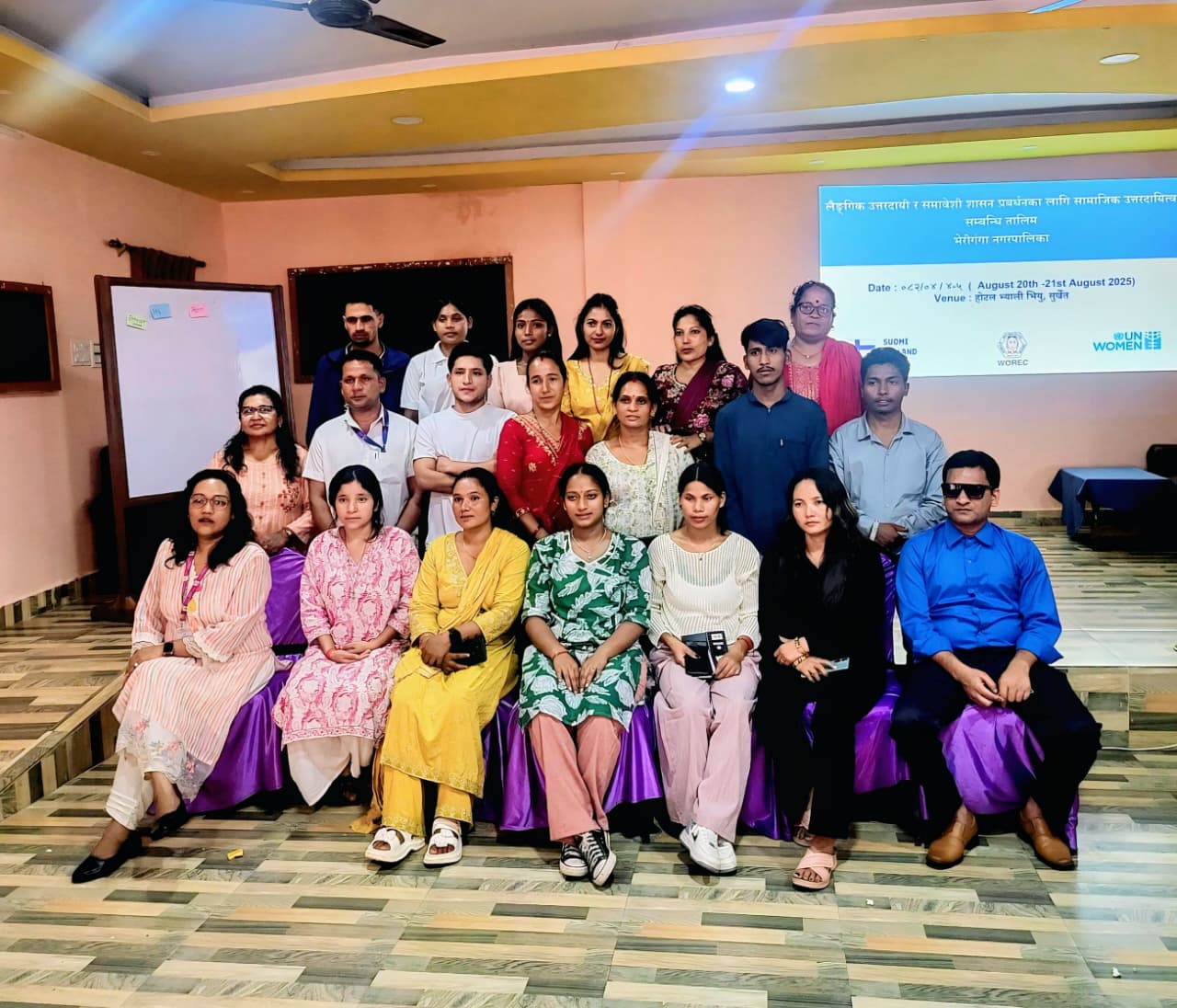
Binod Ghimire, Surkhet. A two-day training on social responsibility has been completed in Surkhet with the aim of promoting responsible governance by putting gender equality and social inclusion into practice. Organized by the Women’s Rehabilitation Center (WRC), with the support of UN Women and coordinated by Bheriganga Municipality, the training was actively attended by participants including women leaders of civil society, representatives of organizations, disability networks, human rights activists, journalists, etc.
The objective of the training was to create an advocacy network to promote gender-responsive and inclusive governance. In addition, an effort was made to clarify to the participants how civil society can play an active role at the local level through the practice of social responsibility. Its main objectives are citizen participation in the local level planning and budget process, analysis of the status of gender equality policies, and building an effective advocacy network for that.
In the training, trainer Rama Bhandari provided detailed information on the definition, purpose and importance of social accountability, as well as social responsibility, transparency and participation. The participants had the opportunity to practice various tools for promoting social accountability – social audit, public hearing, citizen scorecard. In addition, they discussed the importance of LAISAS (Gender Responsive Social Accountability and Inclusion) and shared experiences on how it can be effectively implemented in local governance.
.The main learning points of the training were discussions on the role of civil society, the need to include a gender perspective in the planning and budgeting process, the concept, importance and process of gender responsive budgeting, access of women and citizens to public services, the role of citizens in monitoring, the moral responsibility of women rights activists and civil society, advocacy and advocacy skills and action plan development. The training
also included learning advocacy and advocacy skills and action plan development. The participants have expressed a collective commitment to make the local level more transparent, accountable and inclusive by putting the knowledge they have learned into practice. They have emphasized the need to ensure the participation of civil society and women’s leadership, especially at the budget formulation stage.
Participant Rekha Gautam said that such training is essential at the community level. According to her, the governance system cannot become fully transparent and accountable until there is awareness among the citizens about inclusive governance and social responsibility. For this, she said that it is necessary to continuously involve women, Dalits, backward communities and civil society in training and practice.
Although the concept of gender responsive budgeting has been in place in Nepal for two decades, experts say that the local level has lagged behind in terms of implementation.



